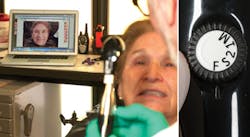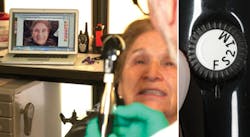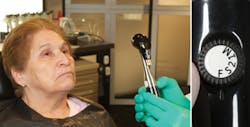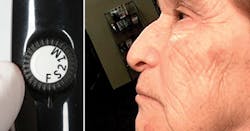Seeing is believing? Doing is believing!
by Joseph J. Massad, DDS
Welcome back! This month, our discussion involves a question from one of my readers. I believe we all can benefit in our practices by sharing with one another.
"I prefer powered toothbrushes for all my implant patients since, unlike natural dentition, there are various angles from bars, abutment studs, and the toughest … the fixed hybrid where a nonpowered toothbrush is ineffective, especially for my older patients. As a note, to encourage them to comply, I provide each of my implant patients a powered brush at no charge."
The reader continues and explains that most of her patients are seniors in their 70s and 80s, and many have implants. At recare hygiene appointments (which unfortunately are very inconsistent), proper home care appears to be lacking and the hygienist complains of frustration and exhaustion after carefully debriding heavy deposits under and around acrylic and metal structures. She also fears she may create damage to either the implant abutment or the prosthesis.
"Dr. Massad, what do you recommend I do?"
First of all, your concern is very refreshing to me since it seems evident that you have love and compassion for your fine senior patients and I applaud you for helping this aging population.
My answer and recommendation is multifold. Many times, you can't do anything. However, the discussion of hygiene needs to begin before placement of implants and each patient needs to be aware that lack of home care and consistent recare appointments may lead to implant loss and loss of the monetary investment in those implants.
Even if you are the greatest dentist on the globe, the only way to have patients always follow your recommendations is, in my opinion, to not practice at all. However, in most instances, we can do something to improve this situation.
Let me share a few tips that may be helpful in motivating patients to help themselves.
- Prior to placing implants, have your patients sign a form (that you can write in your own style) stating that certain habits such as smoking, the lack of home care, and inconsistent professional recare appointments can adversely affect the implant's lifetime.
- Discuss that implant prostheses are different than natural teeth and it is necessary to learn a different method of cleaning.
- Provide an in-office demonstration of the recommended home care hygiene protocol. Due to possible cross-contamination, I give my patients a new brush to teach and perform cleaning.
- Most importantly, have the patient perform the cleaning in your presence to assure he or she can comply. Be honest, but direct your patients and let them understand that the responsibility lies with them or their caretakers. The figures displayed are examples of how my team and I conduct this exercise.
I truly hope that these tips will assist all in the profession in better serving patients. For a free implant hygiene DVD, please email me with your U.S. mailing address and I will be happy to mail you one for your dental library.
I hope my pleasure in dentistry will also be yours. Until next month, be safe.
Joe Massad
Dr. Joe Massad may be reached by phone at (918) 749-5600 or by e-mail at [email protected].
To see Dr. Massad's video tips, visit www.DentalLibrary.com
Past DE Issues



